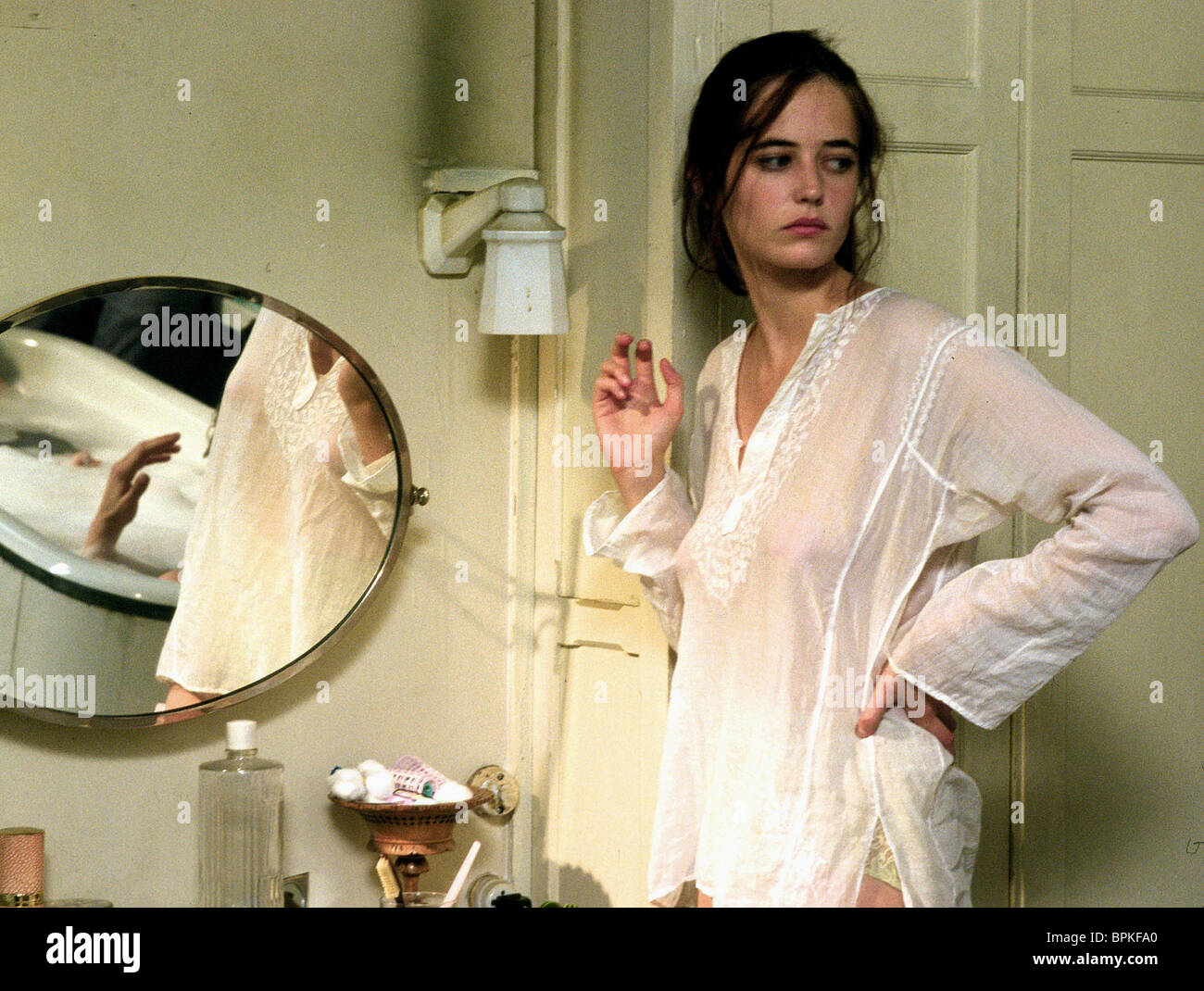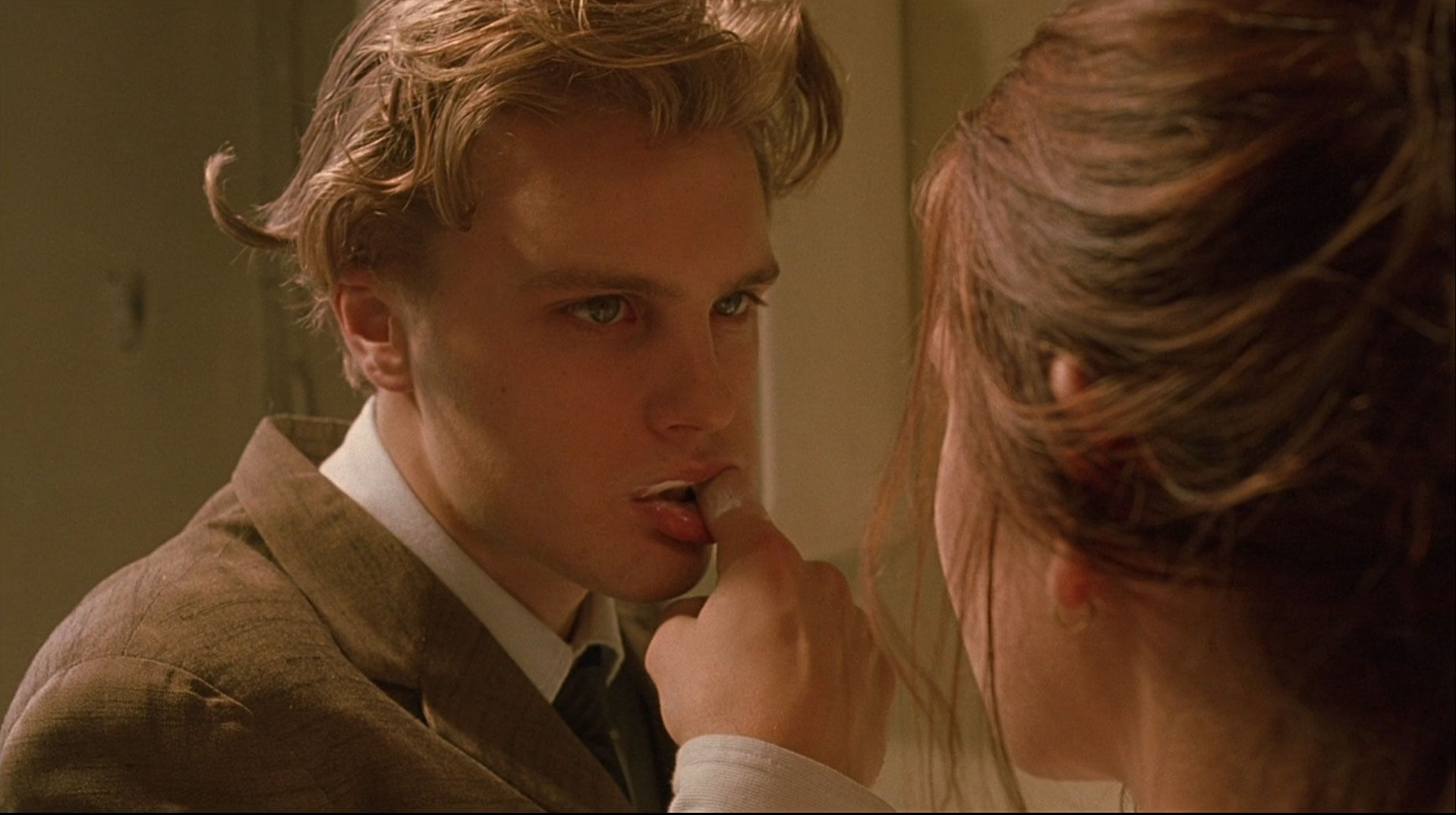

“You two are like two halves of the same person,” says Matthew. Theo explains to Matthew that they are siamese twins, and are each a part of the other. However, their problem seems to be more one of codependance than of a sexual nature. Theo orchestrates Matthew’s sleeping with Isabelle, with him in the room, effectively participating in his sister’s losing her virginity. The relationship between Theo and Isabelle, brother and sister, borders on incestuous. This is where things get a little bit uncomfortable. “I can’t stop you, Isabelle purrs, I have no arms!” On several occasions, they play a game: as one acts out a scene from a film, the other two must guess the work, or pay the forfeit. Matthew has always wanted to make love to Venus de Milo. The three run through the pouring streets of Paris to a soundtrack of Bob Dylan. Bertolucci creates optic plays, such as Isabelle standing in a darkened doorway with long black gloves on, giving her the impression of lacking arms. The Dreamers preserves the playful spirit characteristic of the French New Wave throughout the film. And do you know what my very first words were? New York Herald Tribune! New York Herald Tribune!

I entered this world on the Champs-Elysees, 1959. The three spend their time discussing art, politic and all things cinema.Their conversations revolve around debates such as who is greater, Chaplin or Keaton? Clapton or Hendrix? Can we beat the record set in Bande A Part and run through the Louvre more quickly than the characters in Godard’s film? They live their lives as a reenactment of classic cinema, with the scenes intercutting between their imitations and the original footage. When Theo and Isa invite Matthew, a wide eyed American student, to move in with them, they meet their match in terms of cinematic appreciation. Et demain matin je serais sobre, mais toi, tu sera toujours belle.īertolucci assembles an ode to the French New Wave in this movie about three cinephiles experiencing 1968 Paris.

A real pleasure.Actors: Louis Garrel (Theo), Michael Pitt (Matthew) & Eva Green (Isabelle) The ménage-à-trois and its members are treated sympathetically but never romanticised the cinéphile allusions are many, correct, illuminating but never overdone the music is equally well chosen and expressive the shifts between the erotic hothouse atmosphere of the apartment and the heady air of liberation outside skilfully handled. Besides being stylish, sexy and witty, the film feels authentic. The film benefits hugely from the fact that Bertolucci and Adair were caught up in the exhilarating mood of change that made '68 a year to savour. An evocative reminiscence of an era when cinema and politics could count for as much as carnal passion, this delicious movie is written and directed with feeling and flair, and played to near perfection by its appealing young leads. Meanwhile, things are also heating up out on the streets. There, during a demo against the government's firing of Henri Langlois as head of the Cinémathèque, he meets and falls in with Isabelle (Green) and Théo (Garrel), a brother and sister as beautiful as they are bent on making their lives resemble the movies they adore - Les Enfants Terribles, perhaps? When they invite him to move into their apartment while their parents are on holiday, the relationship becomes more intimate, and intense. In Paris, as a student in the spring of 1968, Matthew (Pitt) is a young American usually to be found glued to the smoke-stained silver screen at the Palais de Chaillot. Bertolucci's engrossing, elegant film is a seductive adaptation by


 0 kommentar(er)
0 kommentar(er)
